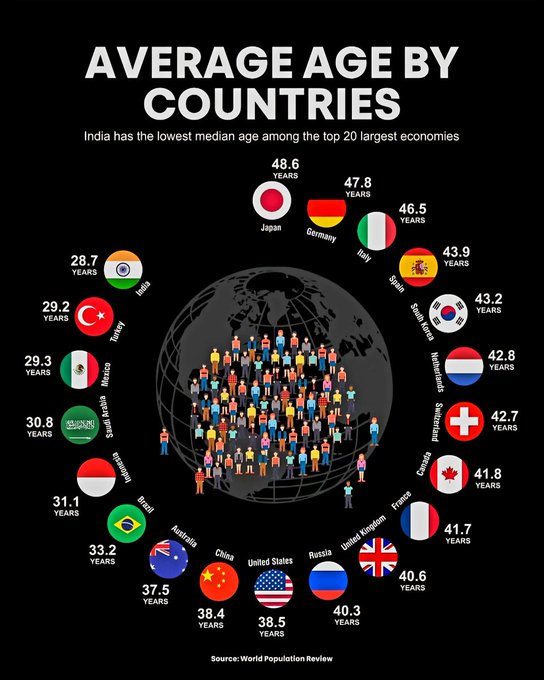In a recent study examining the average age by country, Japan emerged as the nation with the highest average age at 48.6 years, followed closely by Germany at 47.8 years and Italy at 46.5 years.
This data sheds light on the demographic landscape of the top 20 economies, revealing interesting trends in aging populations..
European countries such as Germany, Italy, Spain, and the Netherlands feature prominently in the list, reflecting the continent’s aging population.
Factors such as declining birth rates, improved healthcare leading to longer life expectancy, and economic stability contribute to the increasing average age in these nations.
This demographic shift poses challenges for policymakers in areas such as healthcare, pension systems, and labor markets, as they strive to balance the needs of an aging population with those of younger generations..
Spain and South Korea, with average ages of 43.9 and 43.2 years respectively, highlight the global variation in demographic profiles among top economies.
While Spain grapples with an aging population and low fertility rates, South Korea faces the dual challenge of an aging society and a declining workforce.
These disparities underscore the diverse demographic landscapes that economies must navigate in the coming years..
Looking ahead, understanding the dynamics of aging populations will be crucial for governments and businesses to plan for the future.
Addressing issues such as healthcare provision, social security systems, and workforce planning will be essential to ensure sustainable economic growth and societal well-being in the face of demographic shifts.
The data on average age by country serves as a reminder of the ongoing demographic transitions shaping the global economy and highlights the need for proactive measures to address the challenges and opportunities presented by aging populations..









Leave feedback about this